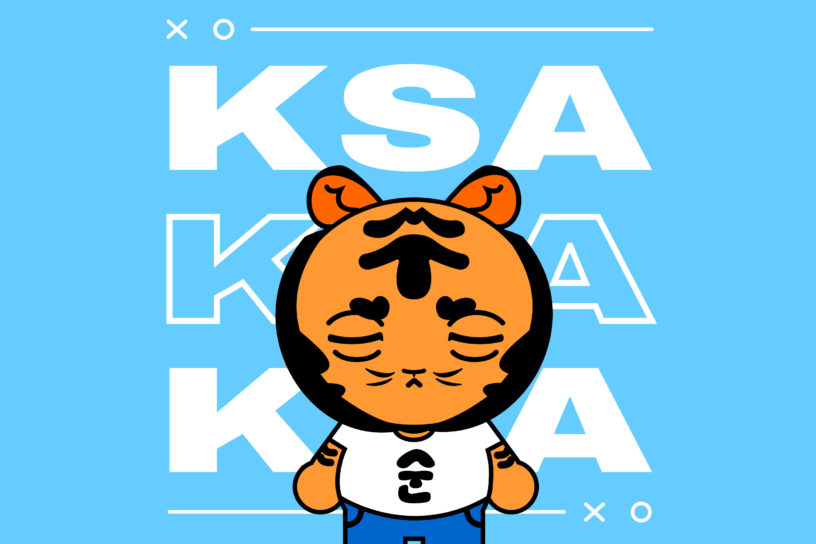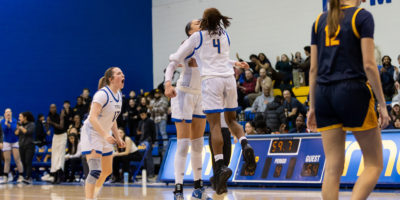By Maria Beltran
Following the disbandment of the Ryerson University Korean Students Association in 2020 due to the COVID-19 pandemic, second-year law and business student Samantha Ju took it upon herself to revive a new Korean Student Association (KSA) at Toronto Metropolitan University (TMU).
Despite the presence of other Korean culture-focused clubs on campus—such as the TMU K-Pop Club and the Association of Korean-Canadian Scientists and Engineers—Ju envisions a more inclusive organization that welcomes a broader range of students. She aims to create a space within the TMU KSA where Korean and non-Korean students can unite to learn about the culture
“There’s a decently-sized Korean community at the school, more than people might realize. And I thought it’d be a good chance to bring Korean students together,” said Ju. “I know Korean culture is so popular now, so it’s a chance for even non-Korean students to come together to learn more.”
Fourth-year nursing student Grace Yoon, who immigrated to Canada from Korea at 13-years-old, also notes the increasing interest in Korean culture among non-Korean students and its positive impact on reducing ignorance.
“In my experience, the general population gaining a deeper understanding of Korean culture has allowed less racism. I think that is the most important part for me,” she said. “A lack of understanding often leads to stereotypes but by learning about Korean culture, it’s overcome and people actually treat you like human beings more than an outsider or an immigrant.”
We’re always thinking about how belonging and connectedness in community is really at the core of students succeeding as they proceed in, through and out of their experience here at TMU
Ju explained that unlike other Korean-centered campus organizations catering to specific majors, hobbies or primarily Korean-speaking students, the TMU KSA is open to the entire campus and communicates mainly in English in its social media marketing. This approach is designed to create a space for Korean students like herself who are a part of the diaspora but may not feel fully connected to the language or culture.
“It was never as much of a welcoming community [in other] KSAs…because it was more for Korean-speaking [students],” Ju said.
Rina Chong, a second-year graphic communications management student, is eager to meet other Korean students on campus through the KSA. As a Canadian-born Korean, she sees value in an inclusive approach to the association through English marketing.
“I also had difficulty with languages. I know English more than I do Korean,” she said. “If it does discourage international [students], we also have Korean-Canadians who probably know more English than Korean. It would be better to do a hybrid of both.”
Yoon expressed concern that some Korean students might react differently to this new approach but remains hopeful.
“There might be some international Korean students who may feel that it’s a different vibe,” said Yoon. “Whereas the original Korean clubs, they only spoke Korean with each other. And if there are non-Korean students, I don’t really know how they would accept that.”
I came to Canada after graduating high school. That’s why, when I first came, I was excited to learn more about other cultures
“I’m hoping that they would accept it well but I would say from my experience that wasn’t always the case,” she added.
Annabelle De Jesus, the mentoring facilitator at Student Life and Learning Support and a member of the Asian Faculty and Staff Community Network at TMU, echoed Yoon’s sentiment. While emphasizing the importance of student-led communities, she expressed hope that cultural groups on campus will find more opportunities to collaborate and work together in the future.
“As staff at the university, we’re always thinking about how belonging and connectedness in community is really at the core of students succeeding as they proceed in, through and out of their experience here at TMU,” De Jesus said.
“I want cultural groups to collaborate with one another, to lean into…the comfort of connecting with another group that you have overlap with,” she continued. “It would also be leaning into the discomfort of maybe having preconceived notions and ideas of another cultural group, but perhaps seeing…there’s so many more things that connect us.”
A lack of understanding often leads to stereotypes but by learning about Korean culture, it’s overcome and people actually treat you like human beings more than an outsider or an immigrant
Hailey Jang, a fourth-year law and business international student is optimistic that the KSA will allow Korean students to connect with both one another and non-Korean students.
“They can introduce Korean culture into Canadian society and also Korean students can bond with each other and feel like they’re in their community,” she said.
Jang, who moved to Canada for university and was unfamiliar with cultural student associations, isn’t too worried about language barriers. Instead, she views it as an opportunity for cultural and language exchange.
“If they have something like language exchange where Koreans and Canadian students can teach [each other] English or music. It would be really useful,” said Jang. “I came to Canada after graduating high school. That’s why, when I first came, I was excited to learn more about other cultures.”
According to Ju, once the full team is hired, the KSA will plan their yearly calendar. Potential events could include a Korean food festival, a skincare workshop and more for students to take part in.












Leave a Reply